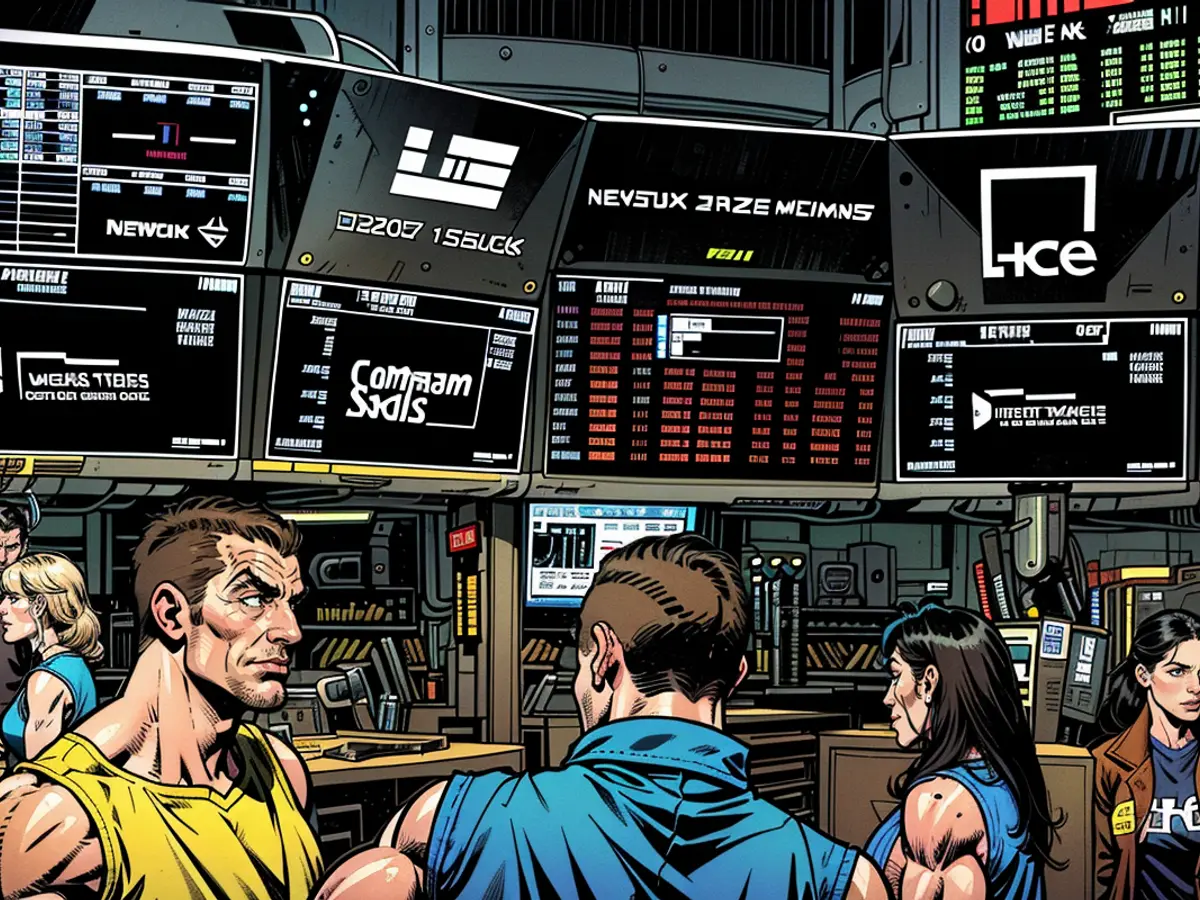Positive development: Contrary to expectations of a rough landing, predictions proved inaccurate.
And thank goodness it's happening! The US economy currently is defying all the predictions. This isn't to say everything's peachy or every American is prospering, but two crucial factors – employment and prices – are settling at satisfactory levels. Jobs are plentiful, wages are increasing, and inflation is mostly back to its pre-pandemic levels. On top of that, the stock market is breaking record highs consecutively, reflecting investors' optimism.
If this isn't a smooth landing, then what is? Sung Won Sohn, a finance and economics professor at Loyola Marymount University, expressed this notion after the impressive September jobs report surpassed expectations.
The 'soft landing' vs 'hard landing' term – though overused – is still a visually appealing metaphor. An economy is likened to an airplane, and the Fed to its pilot. Adjust the controls perfectly, and you'll enjoy a serene decent with cooling inflation and a thriving labor market. Mismanage, and you trigger a recession.
The 'hard-landing' enthusiasts, who argued a recession was necessary to tame inflation, were proven wrong, said Aaron Sojourner, a labor economist at the W.E. Upjohn Institute for Employment Research. "Inflation's been slain, and jobs are alive," Sojourner told me.
The metaphor isn't from an Econ 101 textbook. The Fed doesn't broadcast some kind of alert when the imaginary economic landing gear touches down. Just like a recession, it may only be confirmed afterwards.
Right now, we have stable prices and high employment.
Sojourner questions how long the economy has to "stay" in this state for everyone to relax. A little longer – say, a few more months – would be ideal.
Unforeseen events in the coming weeks and months could potentially shift the economic landscape, but the remarkable September jobs report brought relief to many economists concerned about the July jobs report, which seemed rather dismal before a correction on Friday.
To recap, employers added 254,000 jobs in September, as reported by the Bureau of Labor Statistics on Friday, way beyond the expected 140,000. The unemployment rate dropped to 4.1% from 4.2%.
As economist Justin Wolfers explained, the slowing job market fears were unfounded, as the data was incomplete. The past three months saw average monthly job gains of 186,000, which is desirable.
Some pessimists are even acknowledging their mistake. Former Federal Reserve Bank of New York president Bill Dudley, a vocal 'hard-landing' forecaster, admitted to Bloomberg he was overly pessimistic.
"I've been excessively pessimistic about the risks of a 'hard landing' for the US economy for the previous years," he wrote in an op-ed. "It's reasonable to conclude that ... a recession remains extremely unlikely."
To be clear, Dudley didn't want a recession. He wasn't an isolated voice doubting the soft landing's possibility. As former Treasury Secretary Larry Summers told Bloomberg, "Soft landings are the triumph of hope over experience, but sometimes hope defeats experience."
Despite Dudley and others' reconsiderations, they stress the labor market's importance.
At least one economist believes it's time to switch metaphors. "We should abandon the soft landing vs hard landing chatter and start discussing a strong expansion in mid-cycle," remarked Joe Brusuelas, RSM's chief economist. A recession, he argued, is just "not happening."
The business community has been buoyed by the steady improvement in the jobs market, with many businesses experiencing increased demand due to the steady employment growth. Prominent economists, like Bill Dudley, have had to revise their predictions about a potential recession, acknowledging that the economy might be experiencing a strong expansion rather than a soft landing.








